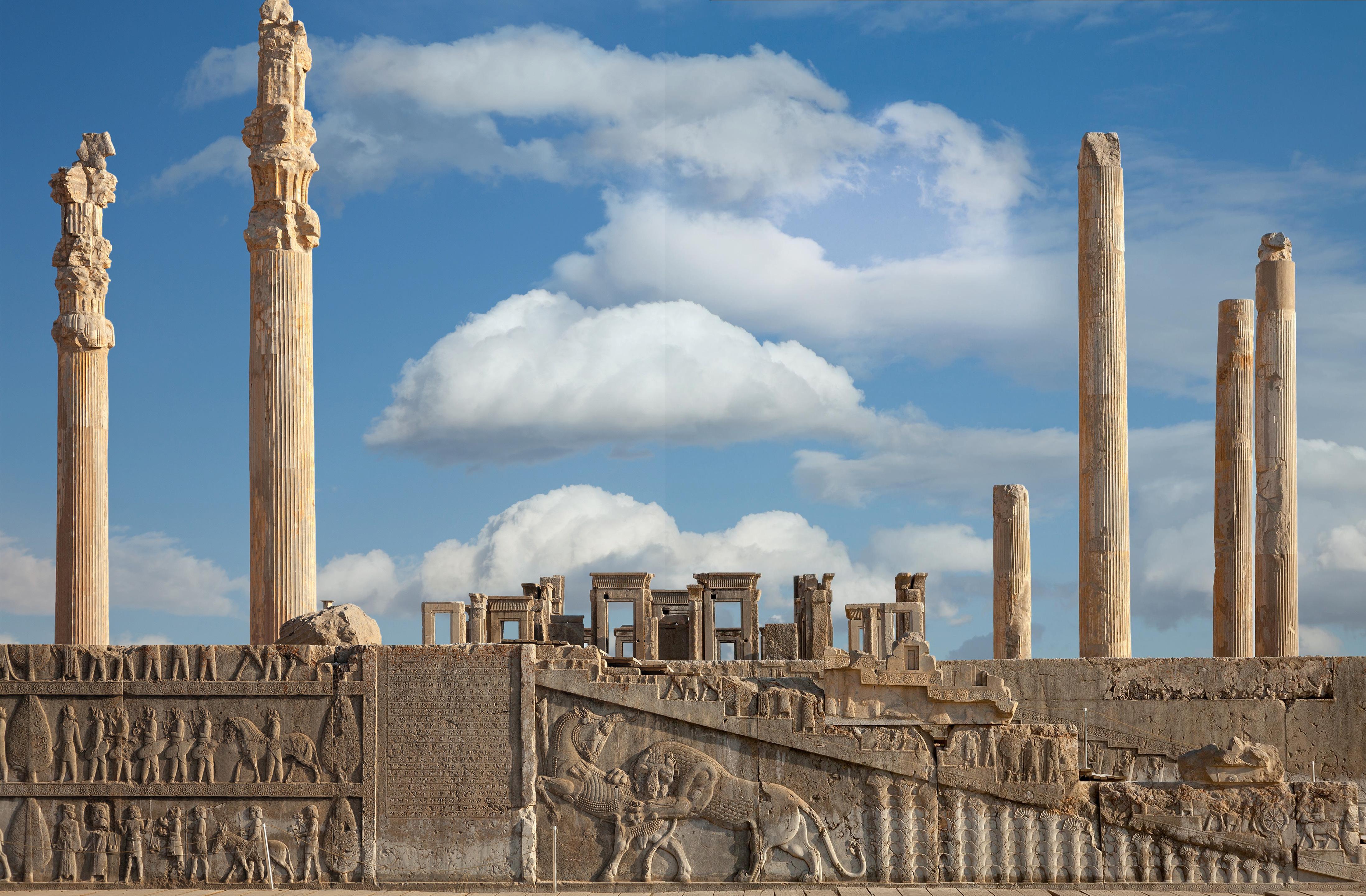Denemek ALTIN - Özgür
Rise of the Persian Princes
Archaeology
|July/August 2023
In their grand capital Persepolis, Achaemenid rulers expressed their vision of a prosperous, multicultural empire

As visitors to Persepolis, capital of the Persian Achaemenid Empire, entered the city, they would approach a stone terrace on which a palatial precinct rose 40 feet above the fertile flatlands at the foot of Kuh-i-Rahmat, the Mountain A of Mercy. Bearing gifts from their homelands-perhaps a metal chalice or a braying donkey-they would ascend 63 limestone steps, pivot on a landing, then climb another 48 steps to an imposing threshold known since antiquity as the Gate of All Nations. Flanking the four-story-tall gate were statues of lamassu, winged bulls with human heads and curly beards.
The great city was founded by the Persian king Darius I around 518 B.C. in present-day Iran and construction continued for nearly 200 years. For the duration of its existence, the ever-expanding metropolis was a royal estate, a bustling construction site, and an urban center that housed as many as 45,000 residents nourished by surrounding orchards and farmlands.
Glazed bricks adorned the entryway’s interior, and two identical trilingual texts, inscribed in Old Persian, Elamite, and Babylonian, read: “I, Xerxes, the great king, king of kings, king of the countries possessing many kinds of people, king of this great earth far and wide, the son of Darius the king, the Achaemenid.” Travelers would have continued through the gate onto the royal terrace, a massive 30-acre platform filled with spacious meeting halls and palaces where reliefs depicted kings receiving attendants and taming fierce creatures. The walls would have glowed from the hues of glazed tiles, murals, and inlaid gold, silver, and precious minerals. Painted with especially vibrant blues, Persepolis was an oasis that stood out from the hazy plains, says archaeologist Alexander Nagel of the Fashion Institute of Technology.
Bu hikaye Archaeology dergisinin July/August 2023 baskısından alınmıştır.
Binlerce özenle seçilmiş premium hikayeye ve 9.000'den fazla dergi ve gazeteye erişmek için Magzter GOLD'a abone olun.
Zaten abone misiniz? Oturum aç
Archaeology'den DAHA FAZLA HİKAYE

Archaeology
THE EGYPTIAN SEQUENCE
Until now, the earliest Egyptians to have even part of their DNA sequenced were three people who lived between 787 and 544 B.C.
1 mins
November/December 2025

Archaeology
SOURCE MATERIAL
As early as 40,000 years ago, some hunter-gatherers in southern Africa ventured long distances to procure special types of stone to make their tools.
1 min
November/December 2025

Archaeology
Secrets of the Seven Wonders
How archaeologists are rediscovering the ancient world's most marvelous monuments
13 mins
November/December 2025

Archaeology
ACTS OF FAITH
Evidence emerges of the day in 1562 when an infamous Spanish cleric tried to destroy Maya religion
12 mins
November/December 2025

Archaeology
OASIS MAKERS OF ARABIA
Researchers are just beginning to understand how people thrived in the desert of Oman some 5,000 years ago
8 mins
November/December 2025

Archaeology
FOSSIL FORCE
One of the planet's most successful arthropods, trilobites, abounded in the oceans from about 520 million to 250 million years ago.
1 min
November/December 2025

Archaeology
BIGHORN MEDICINE WHEEL, WYOMING
Perched almost 9,700 feet above sea level on Medicine Mountain in Wyoming's Bighorn Range, the Medicine Wheel is an 80-foot-diameter circular structure made from limestone boulders.
2 mins
November/December 2025
Archaeology
ANCIENT LOOK BOOK
A young woman buried in China's Tarim Basin some 2,000 years ago went to the afterlife accompanied by the height of fashion.
1 mins
November/December 2025

Archaeology
A FAMILIAR FACE
In the early eleventh century, a landslide on the island of Ostrów Lednicki in western Poland caused a hillfort to collapse and slip to the bottom of Lake Lednica.
1 min
November/December 2025

Archaeology
Temples to Tradition
A looted cache of bronzes compels archaeologists to explore Celtic sanctuaries across Burgundy
13 mins
November/December 2025
Translate
Change font size
